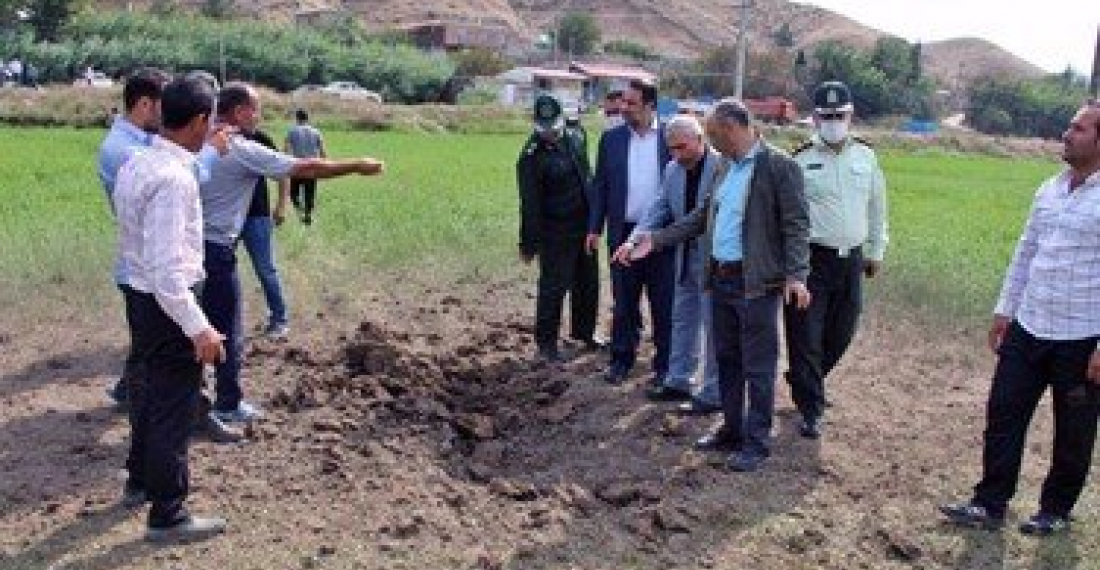Iran's place in the Caucasus is often forgotten, its role nearly always misunderstood. The current conflict brings war right to the borders of the Islamic Republic and risks adding internal tensions to an already tense internal political and ethnic situation. Some of the heaviest fighting in the last twelve days has been going on in the southern part of the Nagorno-Karabakh conflict zone just across from the Aras River which provides a natural border. On Wednesday (7 October) Armenian sources that Azerbaijan was building up a large force on its side of the river, territory that had been regained in the last days of fighting. The fighting was so close to Iran that some Iranian villages were hit by ordinance that had gone astray. Azerbaijan moved swiftly to reassure Iran that it will do its utmost to avoid such incidents, and president Aliyev also spoke with president Rouhani where it is understood the same message was delivered.
Like Russia, Iran has a complicated and asymmetrical relationship with both Armenia and Azerbaijan. Azerbaijan shares with Iran a long history, a Shia tradition and extensive personal relations, not least because of the millions of ethnic Azerbaijanis living in northern Iran. Since Azerbaijan regained independence relations have often been tense, but in recent years, and especially under president Rouhani, Iran and Azerbaijan appear to have found a common language, and practical areas for co-operation in transport and economic spheres. Iran however has also maintained a very good relationship with Armenia, providing Armenia with its only land connection with the outside world, except for Georgia. The Armenian community in Iran is small but very well respected and well entrenched. For the Armenian leadership in Nagorno-Karabakh, Iran was often the most familiar face of the international community.
Iran does not want another war on its borders, and it is concerned the new situation will draw foreign troops (be they Russian, Turkish, European or American) closer to its border in the guise of peacekeepers. The Islamic Republic, constantly sensitive to the danger of encirclement, looks at this prospect with great trepidation.
Azerbaijani nationalism in Iran
Iranian Azeris reside in the border areas with Azerbaijan, Armenia and the current conflict zone. Signs of rising Azeri nationalism were already evident when Iranian Azeris took to the streets last week in support of Baku's position. Reflecting the concerns of Azeri nationalism, representatives of the Iranian religious leadership in north-western Iran issued statements last week confirming that "there is no doubt that Karabakh is Azerbaijani lands and that it is occupied and should return to Azerbaijan," reports the newspaper Al Araby. The Director of Seminaries, Ayatollah Alireza A'rafi, issued a similar statement on Sunday where he described Karabakh as "the cradle of great scholars throughout Shiite history", according to Mehr News.
Nationalism is not the only concern here as security plays another major role. In the past few days, several shells have landed in or near Iranian border towns, and local residents became worried with one resident killed. Several members of the national security and foreign policy committee of the Islamic Consultative Council and the Iranian Parliament visited the border area, Al Alem TV reported from Tehran. This visit aimed at examining the boundaries and disputes related to developments arising from the conflict and their implications at the border.
Both the Armenian and the Azerbaijani sides apologised for mortar shelling according to Iranian media sources.
Iran's Deputy Police Chief Brigadier General Qassem Rezaei visited the country's northwestern borders in East Azerbaijan and Ardabil provinces on Wednesday,(7 October), after which he said Iranian border guards have full control over any moves in the northwestern borders of the country. Brigadier General Rezaei expressed hope Armenian-Azerbaijani conflict ends and peace returns to the borders of the two counties as soon as possible. The Islamic Republic of Iran is unhappy with the dispute between Baku and Yerevan and emphasizes the settlement of the dispute is realized behind the negotiating table and under the supervision of the UN, he noted. Iran's deputy police chief also warned saboteurs and terrorist groups not to abuse the Karabakh dispute.
An Iranian Foreign Ministry spokesperson said: "We hope the both sides would refrain from continuing war and violence, considering their historical responsibility, would carefully observe the main rights about non-aggression against civilians, and would also bear in mind that the Islamic Republic of Iran cannot tolerate clashes at its borders, specifically a violation of its territory".
Jalal Khoshchehreh, an Iranian writer says to Borna News Agency that: "The current war is of national and security importance to Iran because Iranians have been a collection of ethnicities and religions for thousands of years, and their most important characteristic is a true nation with cultural fusion". Iran does not want the fight to come close to its borders because of the "risk of infiltration by Salafists, ISIS and other destructive groups along Iran's northern borders".
Whilst Tehran has traditionally taken an interest in the Karabakh conflict, this time round it appears to be more vocal in support of the Azerbaijani political cause, yet carefully conceptualising its border as a redline and a matter of top security. Tehran's engagement may be necessary from the perspective of the leadership of the Islamic Republic as clashes are just few miles away from its borders. Tehran is keen on presenting itself as an honest broker for peace, yet its policy is governing by complex factors both at home and abroad.
source: This article was prepared by the commonspace.eu research team using multiple media sources and agencies
photo: Security forces and local officials inspect a crater caused by a shell fired during the Karabakh war, which mistakenly hit agricultural land in Khoda-Afarin District, in Northern Iran. (Photo courtesy of Mehr news agency, Tehran)







